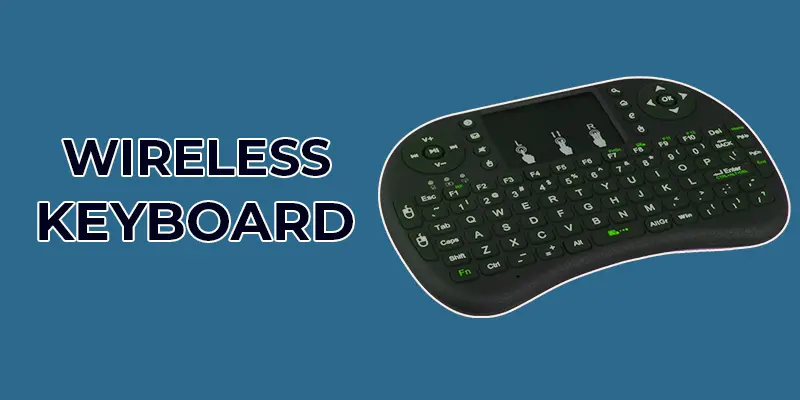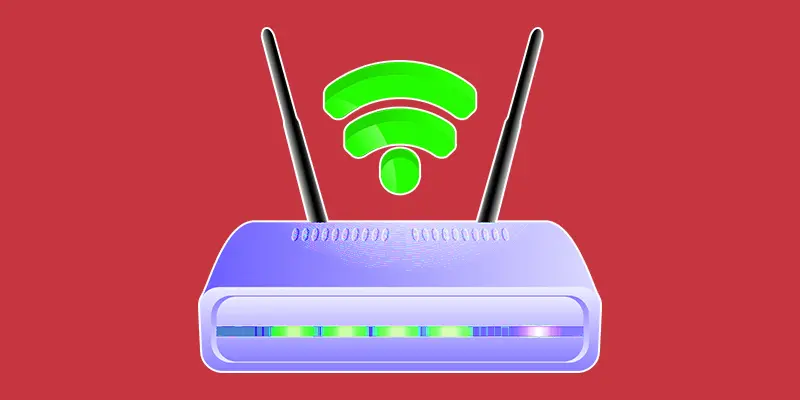Wireless Computer Keyboard: The Good and the Bad
Published: 5 Mar 2024
Wireless Keyboard
Wireless keyboards have become increasingly popular due to their convenience and flexibility, offering a clutter-free workspace and easy mobility. But are they really the best choice for everyone? While many users enjoy the freedom from cables, some face issues like battery life concerns or occasional connection drops. If you’re looking for a seamless typing experience, you might wonder if the wireless option is right for you. Let’s look at the benefits and drawbacks of wireless keyboards to help you make an informed choice.
Advantages of a Wireless Keyboard
Wireless keyboards offer the convenience of a clutter-free workspace and greater mobility, making them ideal for both home and office use. Here are the key benefits:
- Increased Mobility
- Space-Saving
- Clutter-Free Setup
- Flexibility in Placement
- No Cable Wear and Tear
- Enhanced Aesthetics
- Easy to Connect with Multiple Devices
Increased Mobility
Increased mobility is one of the key advantages of wireless keyboards, as they allow users to work from various distances and locations without being restricted by cords. This flexibility enhances productivity and comfort.
Space-Saving
Wireless keyboards contribute to a cleaner and more organized workspace by eliminating the need for cords, allowing for a more minimalist and space-saving setup. This design helps keep your desk tidy and enhances overall efficiency.
Clutter-Free Setup
A wireless keyboard helps create a clutter-free setup by eliminating tangled wires, allowing for a more streamlined workspace. This can lead to increased focus and a more aesthetically pleasing environment.
Flexibility in Placement
A wireless keyboard offers flexibility in placement, allowing you to position it comfortably at any distance or angle from your device. This enhances ergonomics and makes it easier to use in various settings, from a desk to the couch.

No Cable Wear and Tear
With a wireless keyboard, you don’t have to worry about cable wear and tear. Without cords to break, it ensures longer-lasting use and a cleaner workspace. This also reduces the risk of accidental damage from pulling.
Enhanced Aesthetics
A wireless keyboard enhances the overall aesthetics of your workspace by eliminating visible cables, creating a cleaner and more organized look. It adds a modern touch to any desk setup, making it visually appealing and professional.
Easy to Connect with Multiple Devices
Wireless keyboards offer the convenience of connecting easily to multiple devices, such as laptops, tablets, and smartphones, without the hassle of tangled cables. With just a few clicks, you can switch between devices, improving productivity and multitasking.

Disadvantages of a Wireless Keyboard
While wireless keyboards offer great convenience, they also come with certain disadvantages, such as the need for batteries and potential connectivity issues. Here are the key drawbacks:
- Battery Dependency
- Connectivity Issues
- Signal Interference
- Higher Cost
- Limited Battery Life
- Potential Lag
- Requires Additional Setup
Battery Dependency
Since batteries are usually used to power wireless keyboards, you’ll need to monitor battery life and possibly replace or recharge batteries. When compared to wired gadgets, which get their power directly from the device they are linked to, this could be a drawback.
Connectivity Issues
Wireless keyboards can sometimes face connectivity challenges, such as signal interference or delays, particularly in places with a high concentration of wireless devices. This can result in annoying typing lags or failed connections, which hinder your workflow.
Signal Interference
Signal interference is a common issue with wireless keyboards, where other devices like routers, microwaves, or Bluetooth gadgets can disrupt the keyboard’s connection, causing delays or unresponsiveness.
Higher Cost
Wireless keyboards cost more than cable keyboards because of their advanced technology and convenience. The added cost might not be justified for some users, especially those on a budget.
But we have for you the best cheap keyboards.
Limited Battery Life
Wireless keyboards require batteries to operate, and their battery life can be limited. Frequent battery replacements or charging may be necessary, which can be inconvenient for users.
Potential Lag
Wireless keyboards can sometimes experience a slight delay or lag in response time, especially with low-quality connections or distance from the device. This can affect typing speed and accuracy.
Requires Additional Setup
Wireless keyboards often require extra setup steps, such as pairing with your device via Bluetooth or using a USB receiver. This can be time-consuming and may require troubleshooting.

Conclusion about Wireless Keyboard Pros and Cons
Wireless computer keyboards offer a range of benefits that enhance productivity, comfort, and flexibility in the modern workspace. Wireless computer keyboards provide a versatile solution for those looking to streamline their workspace, enhance their typing experience, and boost efficiency.
FAQS – Benefits and Drawback of Wireless Keyboard
A wireless keyboard with a built-in touchpad or trackpad can be a good choice for a laptop.
The advantages of a wireless keyboard include freedom of movement, clutter-free workspace, and convenience. Disadvantages include connectivity issues, costs, and the need to replace or recharge batteries.
Vast use of wired or wireless headphones at high volumes can contribute to hearing damage.

- Be Respectful
- Stay Relevant
- Stay Positive
- True Feedback
- Encourage Discussion
- Avoid Spamming
- No Fake News
- Don't Copy-Paste
- No Personal Attacks

- Be Respectful
- Stay Relevant
- Stay Positive
- True Feedback
- Encourage Discussion
- Avoid Spamming
- No Fake News
- Don't Copy-Paste
- No Personal Attacks





